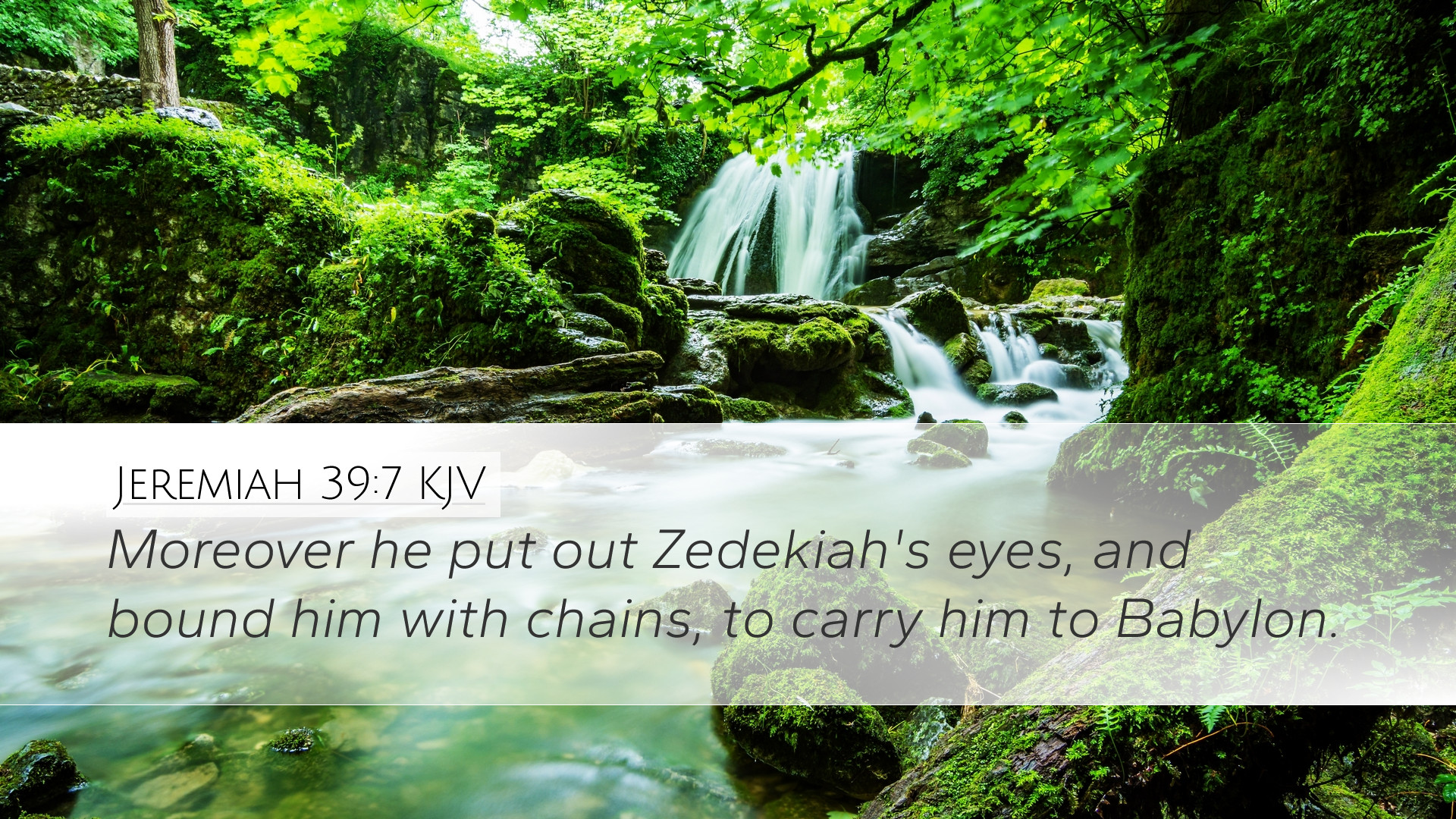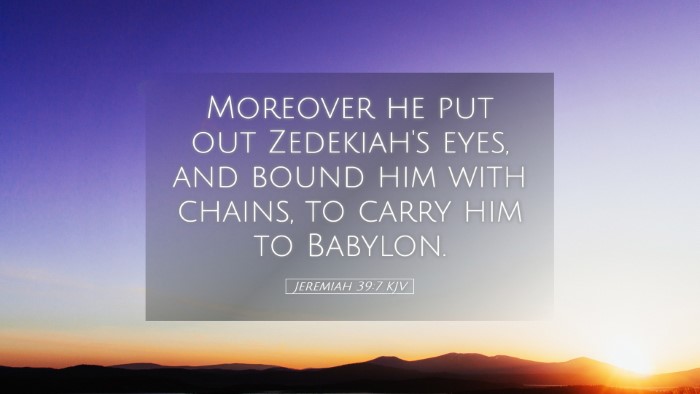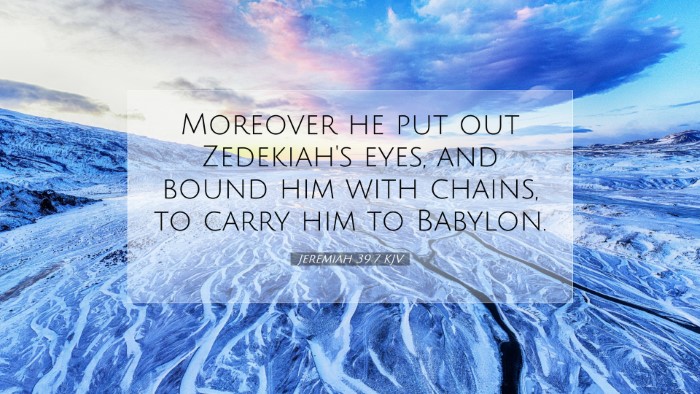Commentary on Jeremiah 39:7
Bible Verse: "Moreover, he put out Zedekiah’s eyes, and bound him with chains, to carry him to Babylon."
Introduction
This verse concludes the tragic narrative surrounding King Zedekiah following the fall of Jerusalem. His fate is a powerful reminder of the consequences of disobedience and rebellion against God. In this commentary, insights from public domain sources such as Matthew Henry, Albert Barnes, and Adam Clarke will be synthesized for a rigorous theological understanding.
Historical Context
The backdrop of this verse lies in the historical siege of Jerusalem by the Babylonians. Zedekiah, the last king of Judah, had resorted to alliances and rebellions against Nebuchadnezzar, which ultimately led to his downfall. Understanding this context is vital as it informs the reader about the dire circumstances faced by Zedekiah and the city he ruled over.
Exegesis of the Verse
The act of putting out Zedekiah’s eyes is symbolic and serves multiple purposes:
- Ultimate Punishment: This act represents the ultimate humiliation and punishment. Zedekiah, a king who once wielded power, is reduced to blind captivity.
- Divine Justice: According to Matthew Henry, Zedekiah's fate illustrates the principle of divine justice. His rebellion against God’s prophet, Jeremiah, culminated in personal tragedy.
- Loss of Vision: Albert Barnes notes that the physical act of blindness can also be seen as a metaphor for spiritual blindness. Zedekiah failed to see the truth of God’s word delivered through Jeremiah, leading to his downfall.
Theological Implications
This verse provides crucial theological insights about divine sovereignty and human rebellion. Zedekiah's story is often regarded as a cautionary tale about the consequences of disobedience to God’s will.
- Covenantal Accountability: Adam Clarke emphasizes the seriousness of covenantal accountability. Zedekiah’s disobedience reinforces the notion that leadership comes with responsibility before God.
- God's Sovereignty: Ultimately, the events illustrate God’s sovereignty over nations and rulers. Zedekiah’s misfortunes were a result of not heeding the prophetic warnings meant to redirect him towards God's ordained path.
- Hope Amid Judgment: Despite the grim reality of the moment, the broader narrative of the Bible often points to hope. Subsequent prophecies affirm that restoration would come after a season of discipline.
Commentary from Key Sources
Matthew Henry
Henry’s commentary provides an in-depth look into Zedekiah's character and decisions. He argues that Zedekiah's fate is largely a reflection of his inconsistent faith. Although he sought counsel from Jeremiah, his actions contradicted that counsel when faced with pressure. Henry observes that the king's failure to act on God’s words ultimately led to his downfall.
Albert Barnes
Barnes highlights the prophetic context surrounding Zedekiah’s blindness. He notes that Zedekiah's eyes being put out is a physical manifestation of a deeper spiritual blindness. Despite being warned of the consequences of his actions by Jeremiah, Zedekiah's heart remained hardened, leading him to a position where he could not perceive the coming judgment.
Adam Clarke
Clarke delves into the implications of Zedekiah's captivity and blindness, pointing out that the king's inability to see symbolizes the broader plight of Israel. Clarke encourages readers to reflect on how disregarding God’s guidance leads not just to personal disaster but communal repercussions for one's people.
Application for Today
The insights from Jeremiah 39:7 encourage modern readers, particularly pastors, students, and theologians, to consider several applications:
- Listening to God's Voices: This verse serves as a stark reminder to heed God’s warnings and to trust in His direction, even amidst prevailing pressures.
- The Role of Leadership: Those in authority positions must recognize their accountability to divine standards, much like Zedekiah's failure illustrated.
- Hope in Restoration: While judgment is serious, the larger biblical narrative suggests that hope and restoration are always possible through repentance.
Conclusion
Jeremiah 39:7 encapsulates the tragic end of King Zedekiah, a poignant reminder of the consequences of human rebellion against God. Insights from key Bible commentators enrich our understanding of this verse as they weave together historical context, theological implications, and practical applications. In studying this verse, may we all strive to remain vigilant in our faithfulness to God’s guidance in our lives.


